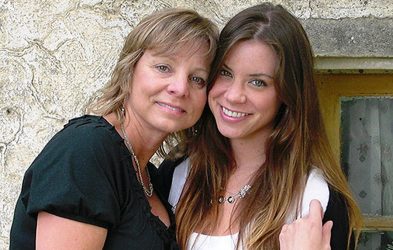By Karen Kaplan
If you want to make hospice workers wince, just tell them about an unresponsive patient with no discernible quality of life alive only on account of feeding tubes and the like. And not only that, some family members insist on this even with no anticipated increase and possibly even a decrease in the patient’s quality of life. As one of my clients who did not request this for his own dying loved one said, “There is a difference between living and between merely existing.” However, the common wisdom is that the motive for family members who do beg to differ and wish to “do everything possible” to maintain their loved one’s life, stems from their own fears of death. Or that by pulling the plug they are sinning or at the very least will feel guilty about giving up.
Fear of Grieving
I think a different fear drives some families to keep their loved ones nominally alive. It is the fear of launching probably the hardest task one can undertake: grieving. Let us suppose for the moment that we are looking at a case where avoiding grief is the primary reason the ventilator and whatnot are plugging away with no end in sight. As awful as that is, it is a way to psychologically stall time. It sticks the patient in the twilight zone between living and being dead. He is being put on hold if I may say. But the family too is in suspended animation, no longer relating to their loved one in the usual understanding of “relating.” Yet, neither can they go full swing into grieving because the patient is not dead. No funeral can take place to do its job of acknowledging the end of a life and of lending public support to the family’s grief. No friends can affirm how sad it is and be there to offer condolences and ongoing offers of help. Whatever grieving does leak through “in advance” is lonely and unarticulated and unsupported.
There is a difference between living and between merely existing.
Letting Our Loved Ones Rest in Peace
Fear is so powerful that it can cause cruelty and unethical behavior. A supervisor’s fear of being outperformed by a subordinate can result in that subordinate’s dismissal. Fear of grieving can result in keeping someone alive even when there is a “negative” quality of life due to pain. Let us release them and us from our holding cells. Let us a face the repercussions on our own souls and our own reduced quality of life if we let fear rule over us. Muster enough strength to let our loved ones rest in peace.
About the Author
Karen Kaplan in 1992 became one of the the first 200 female rabbis in the world. In 2007 she became a board-certified chaplain and served in hospices on the East Coast for 7 years; she now works at the Center for Hope Hospice in Elizabeth, New Jersey. She is the author of Encountering The Edge: What People Told Me Before They Died. Free of religious agendas, the book consists of true stories about her hospice patients and what they most cared about and believed in (the book is available on Amazon and wherever books are sold, as a softcover, ebook and starting in July 2015, as an audiobook; excerpts and reviews are available at publisher’s site). Karen is also pleased to announce the release of her audiobook version of Encountering the Edge. Karen also blogs at Offbeat Compassion.
This guest article about the fear of grieving first appeared on Karen’s blog and we reprint it with her permission; the second part of the title and subheadings are ours. The text reflects the author’s views only, and we neither endorse or disapprove of its content but rather publish it to foster the conversation about end-of-life issues.
Read our open call for guest writers →


One comment.
Will
Yes let our loved ones rest in peace
Comments are closed.